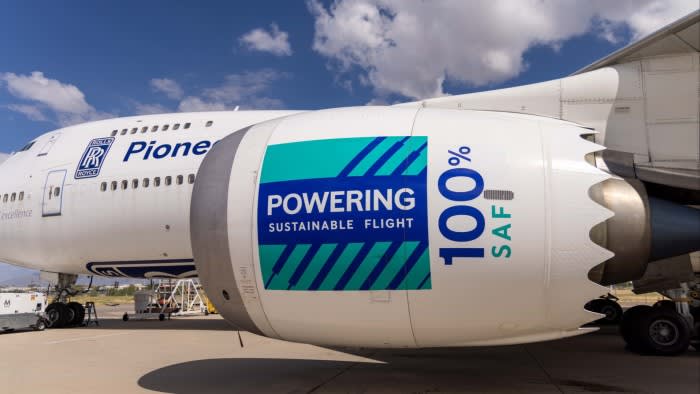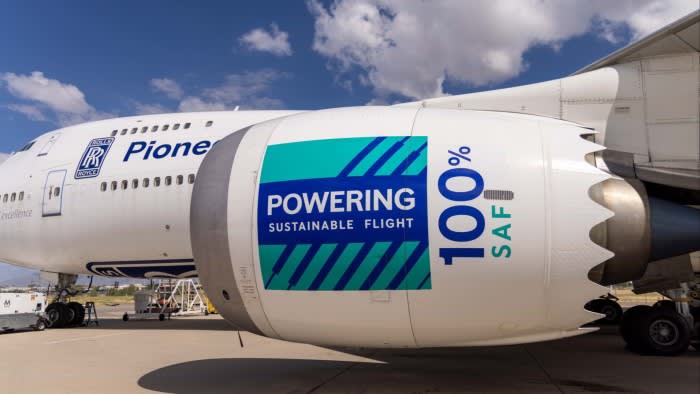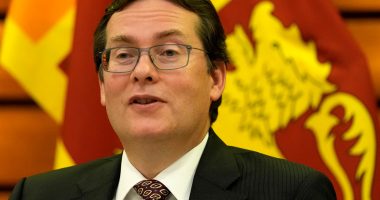
Stay informed with free updates
Simply sign up to the Airlines myFT Digest — delivered directly to your inbox.
Airlines in the UK will be required to progressively switch to greener but more expensive fuel sources under government plans to help the heavily polluting industry decarbonise.
Ten per cent of all jet fuel on flights taking off from the UK will need to be made up of so-called “sustainable aviation fuels”, or SAFs, by 2030, the government said on Thursday.
Made up of a diverse range of sources from crops and used cooking oil to household waste, SAF can emit about 70 per cent less carbon dioxide over its life cycle than traditional aviation fuel and is largely compatible with existing aero-engines.
It currently represents the only realistic way for the airline industry to reach its target of net zero by 2050, given that breakthrough technologies such as hydrogen- or electric-powered passenger aircraft are still in experimental stages.
But the new fuels are currently at least three times as expensive as traditional jet fuel, and only produced in very small quantities. Less than 1 per cent of UK jet fuel was made from SAFs last year.
With 1.2mn tonnes a year needed in the UK by 2030 under the mandate, the government hopes that binding targets will spur fuel companies to produce more, particularly in the UK, driving down the price in the process.
“Sustainable aviation fuel protects the future of the UK aviation, the thousands of British jobs that depend on it, and the holidays and business travel flights that we all rely on,” said transport secretary Mark Harper.
Environmental groups and some scientists have questioned the aviation industry’s reliance on SAFs to reach its target of net zero by 2050, and say it is unclear whether alternative fuels are viable or truly sustainable when needed at scale, arguing that flying less is the only way to genuinely cut emissions.
Most airline bosses expect that a gradual switch to more expensive SAFs will lead to higher ticket prices as higher fuel costs are passed down to consumers.
While the government acknowledged there would potentially be some impact on ticket prices, it said any rises “will fall well within the range of usual fluctuations in prices we see every year”.
It added that it reserved the right to change the terms of the mandate if prices spiral out of control because of SAF shortages.
Tim Alderslade, chief executive of industry group AirlinesUK, said the mandate was a “vital step forward” towards the net zero transition.
But Aviation Environment Federation policy director Cait Hewitt said “what we really need is a reduction in aviation emissions”.
“A percentage mandate for alternative fuel in an industry hungry for growth can’t guarantee that,” she said. “So for the time being, it remains the case that the best way to cut emissions from flying is to fly less.”
The slow build-up of domestic production of the greener fuel has prompted concern from industry executives, who point to huge tax breaks in the US that have spurred SAF production there, and the EU’s earlier introduction of a SAF mandate, which is for 6 per cent by 2030.
The UK government on Thursday also announced a consultation on a “revenue certainty scheme” to guarantee a pre-agreed price for SAF to encourage fuel producers to begin making it.
Read More: World News | Entertainment News | Celeb News
FT









